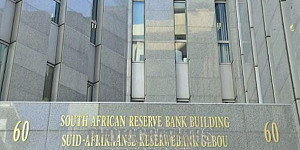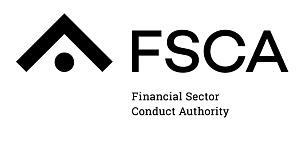Fitch Ratings has affirmed the City of Johannesburg's (CoJ) Long-term local currency Issuer Default Rating (IDR) at 'BBB'. The agency has upgraded the National Long-term rating and the national senior unsecured ratings on outstanding bonds to 'AA'(zaf) from 'AA-(zaf)', and affirmed the National Short-term rating at 'F1+(zaf)'. The Outlooks are Stable. The 'AA+(zaf)' rating on the ZAR333m COJ02 partially guaranteed bond (final maturity in September 2016) has also been affirmed.
The upgrade of the National Rating reflects the recalibration with the International local currency rating after the downgrade of the sovereign rating on 4 December. With the national and the city's governments now sharing the same 'BBB' LC IDR the relative risk between the two has therefore narrowed.
The affirmation of the 'BBB' IDR reflects Fitch's expectations of CoJ's low debt over the medium term, robust budgetary performance by international standards, conservative financial management aimed at maintaining high levels of liquidity and potential national support in light of its important status as the largest city in South Africa (BBB-/BBB/Stable). The ratings also take into account potential pressure on revenue generation stemming from a slowing economy amid structurally high unemployment and demographic growth.
KEY RATING DRIVERS
Fiscal Performance (Strength): Johannesburg continues to perform in line with Fitch's expectations with an operating margin close to 15% of revenue in the fiscal years to June 2015-2017. CoJ's policy of tariffs for services remains cost-reflective and will help absorb the likely 7%-8% increase in salary from the ongoing round of negotiations. The current balance will fund up to two-thirds of capital spending, which we expect to rise towards ZAR10bn by FY17, from ZAR7.5bn in FY14. Fitch expects the balance before debt to range from a small surplus to a small deficit of about ZAR2bn, or 5% of total revenue, as capital subsidies for investment moderate borrowing requirements.
Debt (Strength): Fitch views CoJ's debt as sustainable at around 40% of recurrent revenues. The gross stock of bonds and loans accounted for ZAR15.8bn in June 2015 and will likely rise to ZAR20bn by FY17 to partly fund capital spending. Fitch expects direct debt service (interest and principal) to continue to be covered by the operating balance over the medium term, and debt stock to remain at three to four years of the current balance. Provisions into the redemption fund, at ZAR2bn-ZAR3bn, provide a buffer against repayment peaks such as a ZAR1.7bn bullet bond due in 2018.
Management (Neutral): CoJ aims to maintain cash balances of ZAR4bn-ZAR5bn, well in excess of annual debt servicing requirements. A more extensive use of pre-paid utilities meters supports expectations of improving cash inflows over the medium term, with average collection rates at 95% of tax and fee levied, while provisions close to 75% in June 2015 for difficult-to-collect revenue is above international Fitch-monitored peers and protects CoJ against risks of liquidity pressure.
Economy (Neutral): Johannesburg is the wealthiest city in South Africa with an estimated GDP per capita of about 50% above the national average of USD6,500 and the nation's financial and corporate hub. Against a backdrop of national economic slowdown, Fitch expects activity generated by the implementation of the city's ZAR100bn 10-year investment plan to support the performance of CoJ's economy, and to lead to an average GDP growth of 2%-3% per annum over the medium term, conducive to an expanding tax base when coupled with a slightly rising population.
Institutional Framework (Neutral): Fitch assesses South Africa's inter-governmental relations as "Neutral" to CoJ's ratings. To finance part of their functions and responsibilities subnationals receive subsidies, primarily from the national government, based on established criteria and regulation aimed at preserving the ongoing viability of each subnational. However, in case of a subnational's inability to deliver basic services or meet financial commitments, proportional settlement of financial debt contributes to regaining fiscal balance.
The COJ02 bond is now rated one notch above Johannesburg's national scale senior unsecured rating of 'AA(zaf)', based on a 40% partial credit guaranteed provided on a several and not joint basis by the International Finance Corporation and the Development Bank of Southern Africa (AA+(zaf)). The guaranteed amount, added to the standard unsecured recovery of 40% in South Africa, remains consistent with a one-notch uplift based on Fitch's Criteria for Third-Party Partial Credit Guarantees.
RATING SENSITIVITIES
The probability of a positive rating action on CoJ in the near term is limited to the National Rating as the city now shares the same IDR its sovereign. Growing operating margins towards 20%, strengthening debt servicing cover ratios with debt being in line with Fitch's expectations of about 40% of revenue could lead to an upgrade of the National Long-term Rating.
Conversely, developments that could lead to negative rating action include a significant deterioration of budgetary performance with the operating margin falling below 10% and/or tax and fee collection rates falling below 90% with a substantial rise in trade payables and receivables.






































